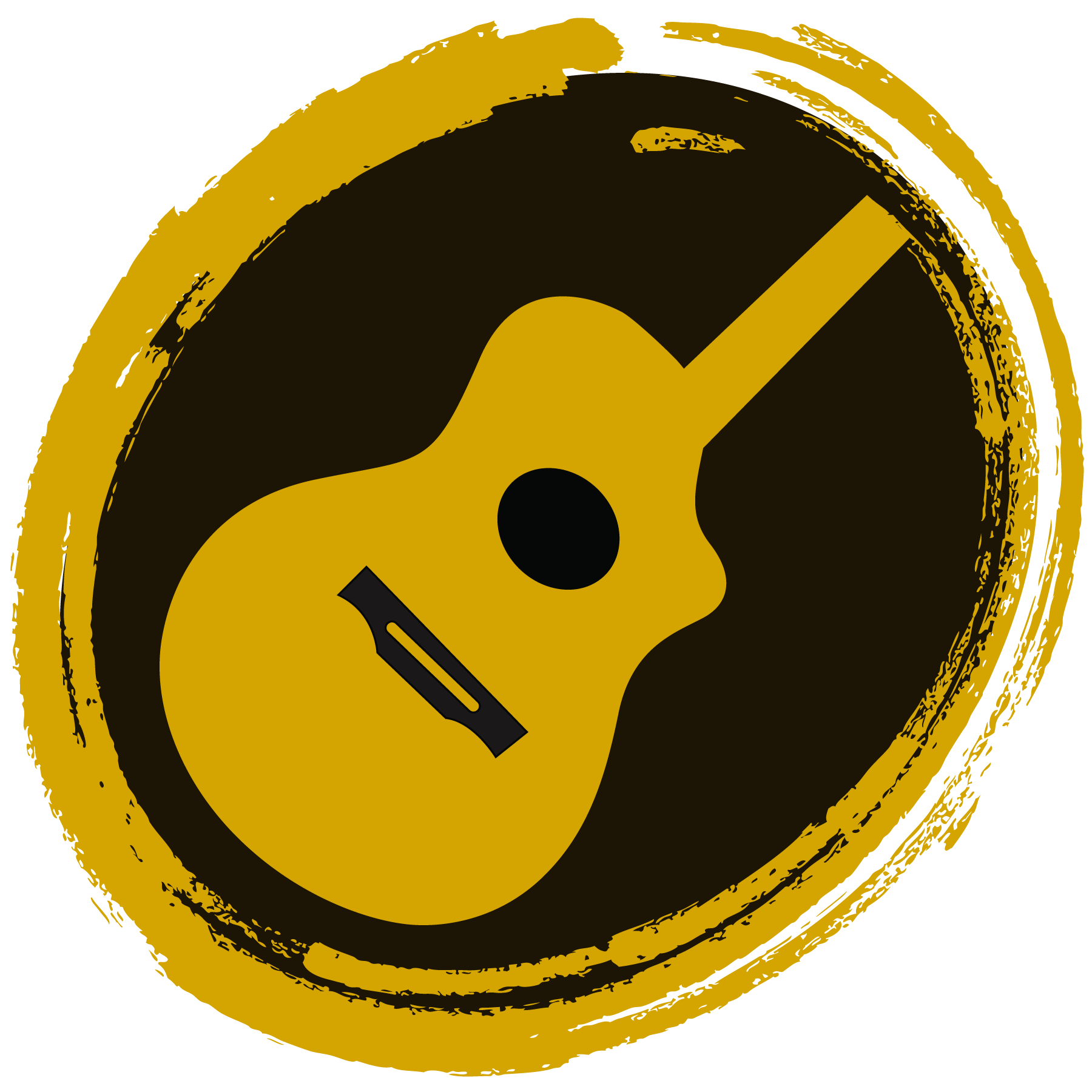At the moment I’ve dusted off a guitar and a bass I bought close to 20 years ago, an Ibanez EDB300 bass guitar
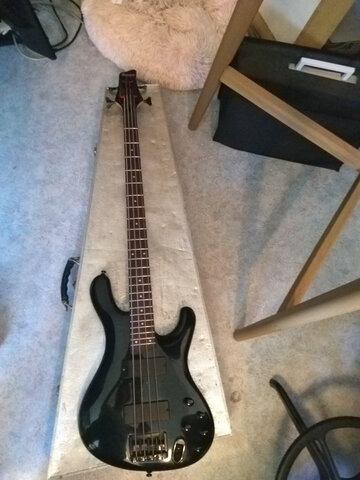
and my FrankenFender
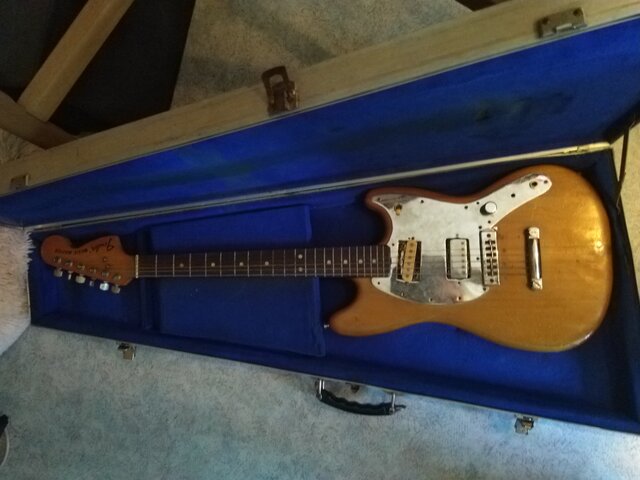
a modified/mutilated Fender MusicMaster.
Without more experience then just messing about with a bad accoustic I thought those weren’t to bright purchases, but at least I had a chance on getting to learn to play them, although I just started last month. (after fixing the FrankenFender, the added pickup is dead)
When shopping for some useful additions (tuner, neckband, stand) I however found the Fazley FMB218NT
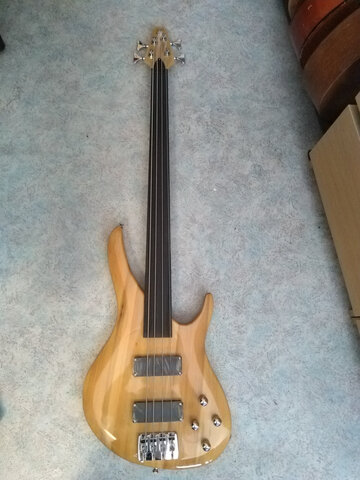
at a very low cost, so I just added it to the basket before checking out. I think for now, buying a fretless bass when just learning to play tops it (for now), although I hope it manages to force me to concentrate more on the left hand.
I guess I’m not the only one that was a tad to enthusiastic when starting, what do you all consider as your (initially) bad decisions and how did they turn out?
Edit: Layout corrections and used my own pick for the Fazely instead of a static one from the shop (that didn’t work in !liftoff@lemmy.world)
Not taking the time to learn basic theory: major/minor scale and chords, and triads.
I’m glad I’m working on that, slowly.
Make sure when you practice you have a clear goal in mind. Noodling around is fun, but it won’t get you anywhere and can often reinforce poor habits. As you progress you’ll learn to identify which skills/techniques you need to work on, and make sure each session focuses on at least one.
Learn your scales and modes, especially if you want to improvise.
Always stretch your wrists and fingers before and after playing
Also make sure to wipe your guitar down with a soft cloth after each play session. You’d be amazed how much sweat and dead skin will get caked into your fingerboard. If you’re noticing it’s a bit gunked up already, take a razorblade and gently scrape it from the wood.
On that note, get a proper set-up done by a professional if this guitar has been in storage for a while. They’ll make sure the neck is set properly, clean up your frets, and any other necessary adjustments. Most guitar shops have a tech on staff who can do this for you at a reasonable price.
If you’re going to learn bass as well, I salute you! I am also a guitarist/bassist. Do not allow yourself to fall into the trap that a Bass is just a “guitar with 4 strings” though. They require very different techniques to play well. That said, those techniques do complement each other. Muting is a good example of this, if you can mute well on a bass then you’ll be world-class at it on guitar.
I could write a ton more, but I don’t want to overwhelm.
As I’m cleaning up and finding instuments (plural) of different types (guitars, synthesizers, violin, clarinet, trumpet, french horn), the 1st goal is to get sound from them, then a tone, then to be able to play at least something with them, without injuring myself. (But that’s to broad for here)
At the moment I’m concentrating on the bass, as it forces you to ‘keep time’. (Not sure if that’s the right term) Also the strings are a tad more spaced (at least on a 4 string) so I have a chance to hit one instead of 2 (or more) and the bass I have (the Ibanez) is in a better state then the Fender (I need to fix tnat one 1st). The 3rd reason it that’s a different use of your fingers then typing (I work in IT), thus preventing RSI (a tad).
Main goal(s) for the bass are now:
- Manage to play the string I want without having the rest joining in
- playing scales without getting my fingers in a knot
- learning where the notes are on the instrument (learned reading music while learning playing piano… a tad)
- …
- play rubberband man
- jazz
Can you direct me to some stretching excersizes for stretching wrists and fingers? That could help me while playing. (And I guess professional) As I started playing past 50 I could use some stretching tips. ;)
Manage to play the string I want without having the rest joining in
As someone who’s coming back to playing after more than a decade, this made me laugh :D
You’re welcome. ;)
That there are muting techniques I guessed, but I just had to either figure it out or find a vid. I’m glad there is a lot online now, which helps a lot. With piano the muting is done for you, on the guitar it was something I didn’t like not knowing how to do. In hindsight totally logical, but there is a lot to learn at once. Play the intended string, use your fretting hand correctly and muting the rest. Practice makes perfect, or at least less bad. ;)
Those are great goals. As a fellow IT worker, I understand your pain.
Keeping time on bass is critical, as it’s part of the rhythm section and more importantly, bridges the rhythm and melody sections into one coherent sound.
Someone else already suggested a metronome, and that is super important.
Seymour-Duncan has some stretches on their site that I would recommend. Just be careful you aren’t stretching your wrists too hard/the wrong direction. https://www.seymourduncan.com/blog/the-players-room/keep-it-loose-stretches-for-guitarists
Thanks for the stretching link, I’ll try them out. (and yes, 1st one is already a challenge, I need to loosen up a tad I notice ;) )
My gear mistake starting out was getting a black serious-looking, but too cheaply-made, guitar with a floyd rose type bridge. I struggled to set it up correctly, and I think I spent more time tuning it than practicing.
I adore my LTD with its Floyd Rose bridge, but boy do I absolutely dread restringing it. Definitely not something for a beginner.
Little trick you can try when re-stringing most trem equipped guitars - take the spring cover plate off and find a piece of wood that will hold the block in place BEFORE you remove the old strings. Then when you’re done restringing, gently remove the piece of wood. Might not be perfect, but it will get you in the neighborhood a lot faster.
Yeah I use a deck of cards for the same effect. The problem I run into is that my set screws got stripped a while back at the same time I changed gauges. It’s never been quite balanced since. I really need to replace those screws.
I have an X series Jackson Soloist. Absolutely change the screws. Also next time you have your Floyd Rose out, tighten the whammy bar post on the bridge itself.
As for tuning. I usually tune G, D, B, A, HIGH E, LOW E. If you have the bridge blocked off (I use a broken pencil with masking tape wrapped around it until it’s the right thickness), it really does make it easier to tune that way. And always tune in the playing position as gravity will affect the tension of the bridge.
I taught myself in the pre-online video days, so all my mistakes were learning bad technique that I then had to unlearn. Having my wrist bent for powerchords and barre chords was probably the thing that took longest to fix.
Also, practising without a metronome was a bad idea! First few times I played with actual other people, my timing was absolutely all over the place.
Then I’m glad I ordered a tuner with metronome. I got gifted a Korg tuner years ago, but wanted one with a dial. With metronome it was cheaper then without, so I picked it. It’ll arrive tomorrow with the rest.
I’m now concentrating more on technique then on songs, as messing up on technique is my biggest frustration. (And battling with gear)
Hmmm, I think I can add ‘buy a guitar stand’ to the list as well, or at least one that’s to small, full.
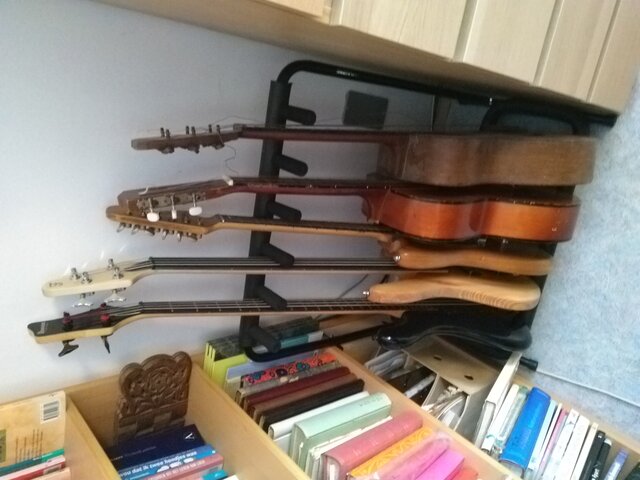
from left to right:
- Ibanez EDB400
- Fazley FMB218NT-FL
- Fender Musicmaster (Frankenfender)
- Angelica 2841
- A restoration by my uncle of a guitar that was smashed in a school play in '84 (sounds terrible, but it’s staying for obvious sentimental reasons)
At least no chance for gas guy to sell me more.

